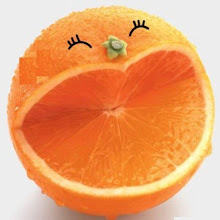(The Standard
P.1 20 Feb 2013) A
mother who told her two-year-old son to pee in a bottle at a crowded Tsim Sha
Tsui restaurant has sparked a new row over mainland manners.
The incident on Lunar New Year eve has caused
a splash on the internet since the mother told her story in an online forum.
Her son suddenly had the urge to pee while
the family was enjoying a meal at the Tsui Wah Restaurant on Carnarvon Road.
She said she always carries a plastic bottle
for such emergencies and took her son to a quiet corner to answer nature.
"But a female waitress saw us and spoke
loudly, saying there is a toilet upstairs," she wrote. "She repeated
it five times until everyone was staring at me."
A male waiter joined in the fuss (小題大作),
saying the boy and the bottle would upset other customers.
"They could have whispered (私語) to
me," the mother wrote.
"My family and I were so depressed
thanks to Hongkongers' discriminating (以特殊對待) against
mainlanders."
The comment sparked heated debate on Facebook
and other forums.
"The government should set up more dog
toilets - it's more suitable for them," netizen Jacky Flk commented.
Another said: "Those who pee with their
legs up will still do so even if they are well-dressed."
A Tsui Wah Group spokesman confirmed the
incident, adding the staff spoke loudly because of the noise in the restaurant
and had apologized to the customer.
But he stressed that "any behavior that
poses (提出) a
threat to food hygiene is prohibited."
In another incident last Saturday, dishes
were hurled (被猛力投擲) inside a Fairwood restaurant in Tseung
Kwan O after a woman with a mainland accent (大陸口音)
got into a row (吵架)
with a local. Firemen and an ambulance were called.
Fairwood confirmed there was a dispute (爭執). Police said two families - Chan and Wong - were eating at the
restaurant on Chung Wa Road when a member of the Wong family accidentally
splashed (不小心地濺)
milk tea on the floor.
No one was injured and the case was
classified (按分類) as
a dispute.
Chung Kim-wah, director of the Hong Kong
Polytechnic University Center for Social Policy Studies, fears increasing
tension (緊張)
between Hongkongers and mainlanders is a potential timebomb (計時炸彈).
"The Tsui Wah case is a small incident
and I believe that mainlanders will gradually adapt (漸漸地適應) to Hong Kong's culture," Chung said.
"But what I fear is that if such
controversies escalate (爭論逐步擴大),
it could develop into open warfare (開戰).
It's just a matter of time (這只是時間問題)."
Chung stressed that the government should
play an active role in easing the problem.
"For example, the government could
consider restricting (限制) the
number of multi-entry permits(一簽多行).
"Or it could slow down expansion (擴張) of the Individual Visit Scheme (個人遊), which might help reduce the tension between the two sides
and make Hongkongers feel more comfortable.
"The scheme has been in force for 10
years and it's time for the government to review it."
Beatrice Siu

Hong Kong is a famous international city. China is a developing country. Besides the culture background and daily lifestyle of Hongkongers are different from mainlanders. For examples, some mainlanders don’t line up behind the yellow line at the platform when they are waiting for a train. I occasionally saw the picture of mainlanders sitting and hunkering as well as eating on the aisle in the train compartments. Most locals took a dislike to mainlanders because their manners are bad. It results that Hongkongers had cultural hostility towards mainlanders.
回覆刪除Many Hong Kong people may be angry with a mainland mother who asked her son to pee in a plastic bottle at a crowded restaurant in Tsim Sha Tsui. It is bad manner. The incident caused a heated debate on Facebook and other forums. Some netizen sent negative signals to mainland visitors. Those comments increased conflicts between Hongkongers and mainlanders.
How do we do to avoid those matters repeating in Hong Kong? In my opinion, if the waitress and waiter had `whispered to the mainland mother and suggested what she did, the latter would have thanked to them.
Tourism is very important to HK. It has generated a lot of economic benefits and employment opportunities. Thus we should tolerate mainland visitors and live in peace with them.
The government should promote the education of the culture of Hong Kong to visitors and provides more guideline to them. At the same time, it should encourage citizens to be kind to tourists. It is time for government to take reciprocal action and to create a win- win situation.
Betty Tam